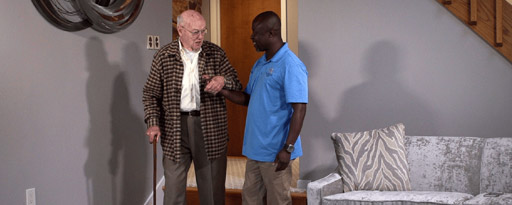Understanding and Overcoming Caregiver Burnout
Caregiving is a rewarding but challenging role, and it’s not uncommon for caregivers to experience what’s known as caregiver burnout. Many people may think of this as an afterthought, but caregiver burnout is a real and serious problem that can affect anyone who is caring for a relative, loved one or client.
This blog article will help you learn what caregiver burnout is, how to recognize the signs and symptoms, and tips on how to prevent it.
What is Caregiver Burnout?
Caregiver burnout is a state of physical, emotional, and mental exhaustion that can occur when caregivers don’t get the help they need, or if they try to do more than they are able, physically or financially.
Signs and Symptoms of Caregiver Burnout
The signs and symptoms of caregiver burnout can vary from person to person, but some common symptoms include:
- Feeling exhausted all the time
- Difficulty concentrating or making decisions
- Irritability or anger
- Withdrawal from social activities
- Changes in sleep or appetite
- Physical symptoms such as headaches, stomachaches, or muscle pain
Caregiver burnout is caused by a variety of factors, including the demands of caregiving, the lack of support, and the caregiver’s own health and well-being.
For a more in-depth look, this article from John Hopkins School of Medicine does a great job outlining some of the Causes and Symptoms of Caregiver Burnout in more detail.
If you are experiencing any of these symptoms, it is important to reach out for help. Talk to your doctor, a mental health professional, or a support group for caregivers.
Causes of Caregiver Burnout
There are many factors that can contribute to caregiver burnout, including:
- The daily demands of caregiving
- The lack of support
- The caregiver’s own health and well-being
- The length of time the caregiver has been providing care
- The physical and mental toll in can take on one’s body and spirit
There are a number of things that caregivers can do to prevent burnout, such as asking for help, taking breaks, and engaging in activities that they enjoy.
It is important to understand the causes of caregiver burnout so that you can take steps to prevent it.

How to Prevent Caregiver Burnout
There are a number of things that caregivers can do to prevent burnout, including:
- Asking for help from family, friends, or professionals
- Taking breaks from caregiving
- Engaging in activities that they enjoy
- Taking care of their own physical and mental health
Caregiver burnout is a real and serious problem, but it is preventable. By following these tips, you can reduce your risk of burnout and continue to care for your loved one in a healthy and sustainable way.
If you are a caregiver, it is important to be aware of the signs and symptoms of burnout and to take steps to prevent it. If you are experiencing caregiver burnout, there are resources available to help you – don’t be afraid to ask for help.
Extra Resource For Caregivers
The U.S. Department of Health and Human Services has a lot of great resources for caregivers who take care of aging, seriously ill, or disabled family members or clients. We’d encourage you to take a look at them if you feel you need more help.
ℹ️ Featured blog post Image by jcomp on Freepik






